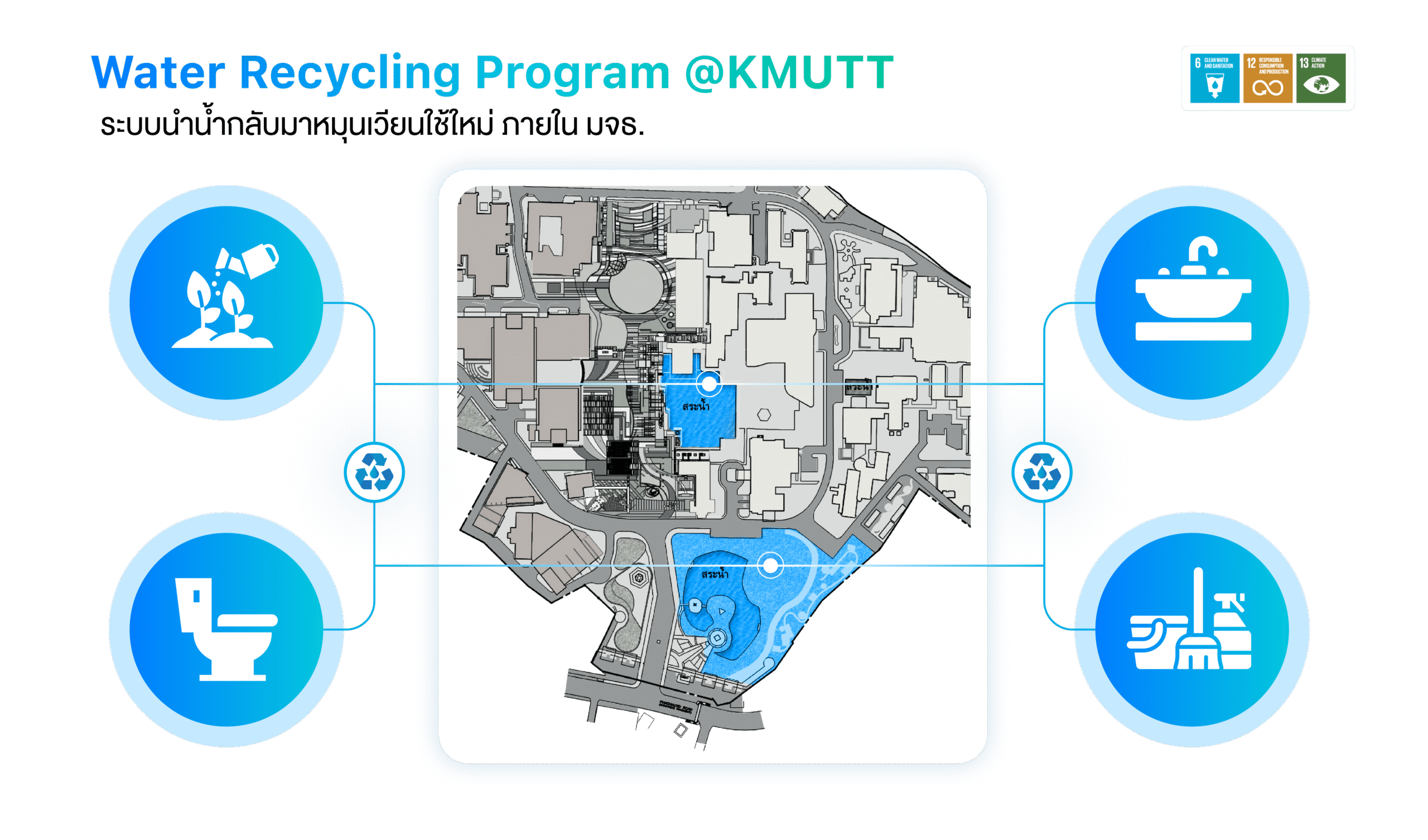




Water Recycling Program in New Building
Since 2010, King Mongkut’s University of Technology Thonburi (KMUTT) has strengthened its commitment to water conservation and sustainable water management in response to growing concerns over drought, water scarcity, and the need for resilient campus water systems. In alignment with KMUTT’s Green University Policy, the university has integrated water recycling systems into all new green building projects to maximize water efficiency and reduce dependence on external water sources.
Currently, seven major buildings across KMUTT campuses are equipped with advanced water recycling technologies, including:
- BRI Building (Green Building)
- Sport Complex (Bangkhuntien Campus)
- FIBO Building
- Wisawa Wattana Building
- President Building
- Thumaraksa Dormitory 1
- Thumaraksa Dormitory 2
These systems are designed to collect, treat, and reuse greywater from restrooms, laboratories, and washing areas for non-potable applications such as landscape irrigation, toilet flushing, and general cleaning. The technology incorporates filtration and disinfection units that meet national standards for recycled water, ensuring safety and efficiency in every cycle.
Through these innovative systems, KMUTT has achieved a significant reduction in piped water consumption and operational costs, while advancing its vision of a low-impact, resource-efficient campus. The Water Recycling Program not only demonstrates KMUTT’s technical capability in sustainable infrastructure design but also serves as a replicable model for environmentally responsible development in higher education institutions nationwide.

At King Mongkut’s University of Technology Thonburi, wastewater management is designed to promote sustainability through advanced water segregation and recycling systems. The university distinguishes between grey water (originating from baths, sinks, washing machines, and kitchen facilities) and black water (from toilets, containing organic waste and potential pathogens), ensuring that each type is treated appropriately and efficiently.
Through KMUTT’s Water Recycling Program, grey water is collected, treated, and repurposed for non-potable applications across the campus. This initiative plays a crucial role in reducing water demand and optimizing resource utilization.
Recycled grey water is now used in multiple daily operations, including:
- Gardening and landscape irrigation
- Toilet flushing
- Floor and road cleaning
- Bike washing stations
- Construction activities such as concrete mixing and site cleaning
By reusing treated grey water in these applications, KMUTT has successfully reduced piped water consumption by approximately 60,000 cubic meters per year, significantly lowering utility costs while mitigating the environmental impact associated with freshwater extraction and wastewater discharge.
Key Outcomes
- Target: 25% of recycled water usage in campus by 2024
- Status (2025): 80% of water recycle usage in campus
This achievement highlights KMUTT’s proactive leadership in sustainable water management, showcasing how innovation, infrastructure, and environmental stewardship can work together to create a model for responsible campus operations.


